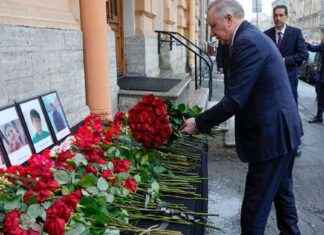“Although the action of the government of Nauru to sever its diplomatic relations with Taiwan is a sovereign decision, it is no less disappointing,” said Tuesday, January 16, the spokesperson for the US State Department, Matthew Miller . The government of Nauru, a small Pacific island country (12,500 inhabitants), declared on Monday that it would no longer recognize Taiwan “as a separate country” but “rather as an inalienable part of Chinese territory”. The move came two days after the presidential election victory of Lai Ching-te, who promised to protect Taiwan from “threats and intimidation” from Beijing.
Asked to react, the spokesperson for Chinese diplomacy, Mao Ning, strongly condemned the American declaration. “The United States made an irresponsible remark about an independently made decision by a sovereign country, and smeared the efforts of Chinese diplomacy,” Mao Ning said. “This constitutes a serious violation of the ‘one China’ principle,” she lambasted.
China believes that Taiwan is one of its provinces, which it has not yet succeeded in reunifying with the rest of its territory since the end of the Chinese civil war in 1949. It says it favors a “peaceful” reunification. with the island, where the approximately 23 million inhabitants are governed by a democratic system. But it has never renounced the use of military force.
China takes a dim view of the increase in recent years in contacts between American and Taiwanese politicians, which it considers to be breaches of the United States’ commitment not to have official relations with the island. . On Monday, an American delegation, presented as unofficial, met in Taiwan with the outgoing president, Tsai Ing-wen, and the president-elect, Lai Ching-te, who promised to protect Taiwan from “threats and intimidation” from Beijing.
“We tell the Philippine side not to play with fire on the Taiwan issue.”
On Tuesday, China also announced that it would summon the Philippine ambassador, after a statement by Philippine President Ferdinand Marcos. The latter congratulated the Taiwanese president-elect on Monday on social networks on his election, and declared that he looked forward to beginning “close collaboration” with him. “The Chinese side is strongly dissatisfied and resolutely opposes it (…). This morning, Deputy Minister Nong Rong summoned the Philippine Ambassador to China to… urge the Philippine side to give the Chinese side a responsible explanation,” Mao said at a press conference.
These remarks “constitute a serious violation of the one-China principle,” the spokesperson later lambasted again. “A serious violation of the political commitments made by the Philippines to the Chinese side, and a blatant interference in China’s internal affairs,” she continued.
“We tell the Philippine side not to play with fire on the Taiwan issue (…) and to immediately stop its unwarranted words and actions on Taiwan-related issues and no longer send wrong signals to the forces separatists in favor of Taiwan’s independence, she added. We advise President Marcos to read more to fully understand the history of the Taiwan issue so that he can draw the right conclusions. »
The Philippines and China also have competing claims in the South China Sea, which have given rise to frequent incidents at sea in recent months.






